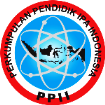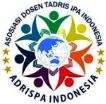The Use of Android Based Multi-representation Test to Profile 4C Skills Based on Experimental Activities Regarding to Gender and Learning Styles
Abstract
This study aims to see how well Android based multi-representation test to profile 4C skill based on experimental activities on heat transfer topic regarding gender and learning styles A descriptive research to profile the 4C skill students based on gender and learning style. We use fleming’s VAK learning style questionnaire to identify student learning styles. The research subjects were 60 students of class XI MIPA at a public high school in Majalengka Regency, consisting of 20 male students and 40 female students. 33 students (7 boys and 26 girls) had an Auditory learning style, 17 students (8 boys and 9 girls) had a visual learning style and 10 students (5 boys and 5 girls) had a visual learning style. kinesthetic. Research data were analyzed using quantitative descriptive analysis techniques. The results showed that female students have higher 4C skills than male students in each student’s learning style. This result is agreed with previous research. The visual learning style both female and male student have the higher 4C skill than other learning style and agreed with previous results. It can be understood since the application is dominant with visual content. We conclude that Android based multi-representation test has successfully measure 4C skills based on experiment activities. Teachers think that the application has complete features to measure 4C’s students. It is practical tool to get student’s 4C’ profiles easily and quickly. Based on 4C’s students profile have successfully gave feed back for teacher to improve their learning design such as inserting group experiment activity to solve problem. We conclude that Android based interactive test can be an alternative test for profiling Student’s 21st century skill quickly, easily and practically.
Keywords: 4c profile, android based multi-representation test, gender and learning style
Full Text:
PDFReferences
Abraham, A. (2016). Gender and creativity: an overview of psychological and neuroscientific literature. Brain Imaging and Behavior, 10(2), 609–618.
Agmita, N., Suyana, I., & Feranie, S. (2021). Desain LKPD Berbasis Masalah untuk Melatihkan Keterampilan Abad 21. Journal of Teaching and Learning Physics, 6(2), 90–99.
Himmah, S. F., Mahanal, S., & Zubaidah, S. (2017). Pengaruh Model Pembelajaran Biologi Berbasis Reading-Concept Map-Reciprocal Teaching Dan Gender Terhadap Keterampilan Berpikir Kreatif Siswa Kelas X SMA Negeri 7 Malang. Seminar Nasional Pendidikan IPA 2017, 2.
Lase, D. (2019). Pendidikan di era revolusi industri 4.0. SUNDERMANN: Jurnal Ilmiah Teologi, Pendidikan, Sains, Humaniora Dan Kebudayaan, 12(2), 28–43.
Liesa-Orús, M., Latorre-Cosculluela, C., Vázquez-Toledo, S., & Sierra-Sánchez, V. (2020). The technological challenge facing higher education professors: Perceptions of ICT tools for developing 21st century skills. Sustainability, 12(13), 5339.
Madyani, I., Yamtinah, S., & Utomo, S. B. (2019). Profile of Creative Thinking Skills on Junior High School Students in Science Learning by Gender. Scientiae Educatia: Jurnal Pendidikan Sains, 8(2), 119–130.
Mardhiyah, R. H., Aldriani, S. N. F., Chitta, F., & Zulfikar, M. R. (2021). Pentingnya keterampilan belajar di abad 21 sebagai tuntutan dalam pengembangan sumber daya manusia. Lectura: Jurnal Pendidikan, 12(1), 29–40.
Raiyn, J. (2016). The Role of Visual Learning in Improving Students’ High-Order Thinking Skills. Journal of Education and Practice, 7(24), 115–121.
Redhana, I. W. (2019). Mengembangkan keterampilan abad ke-21 dalam pembelajaran kimia. Jurnal Inovasi Pendidikan Kimia, 13(1).
Rogowsky, B. A., Calhoun, B. M., & Tallal, P. (2015). Matching learning style to instructional method: Effects on comprehension. Journal of Educational Psychology, 107(1), 64.
Salahshoor, N., & Rafiee, M. (2016). The relationship between critical thinking and gender: A case of Iranian EFL learners. Journal of Applied Linguistics and Language Research, 3(2), 117–123.
Saryanto, T., Pramudya, I., & Subanti, S. (2021). Are Students’ Critical Thinking Skills in Problem Solving Influenced by Gender? International Conference of Mathematics and Mathematics Education (I-CMME 2021), 262–267.
Shamsuddin, N., & Kaur, J. (2020). Students’ Learning Style and Its Effect on Blended Learning, Does It Matter?. International Journal of Evaluation and Research in Education, 9(1), 195–202.
Sutarno, S., Setiawan, A., Suhandi, A., Kaniawati, I., & Hamdani, D. (2018). Model higher order thinking virtual laboratory: model praktikum fisika berbasis keterampilan berpikir kritis dan pemecahan masalah secara kreatif. Jurnal Pendidikan Eksakta, 3(5), 189–193.
Vebrianto, R., Rus, R. B. C., Jannah, M., & Syafaren, A. (2020). Study of strengtheninf 21st-century skill in prospective science teacher based on gender. Jurnal Bioedukatika, 8(2), 79–90.
Wardani, W., Astina, I. K., & Susilo, S. (2018). Pengaruh gender terhadap kemampuan berpikir kritis siswa SMA program IPS pada mata pelajaran geografi. Jurnal Pendidikan: Teori, Penelitian, Dan Pengembangan, 3(12), 1530–1534.
Weng, F., Ho, H.-J., Yang, R.-J., & Weng, C.-H. (2018). The influence of learning style on learning attitude with multimedia teaching materials. Eurasia Journal of Mathematics, Science and Technology Education, 15(1), em1659.
Widayat, W. (2018). Implementasi Pengembangan Kecakapan Abad 21 Melalui Fitur Kelas Maya Portal Rumah Belajar. Tersedia Pada: Http://Pena. Belajar. Kemdikbud. Go. Id/2018/09/Implementasi-Pengembangan-Kecakapan-Abad-21-Melalui-Fitur-Kelas-Maya-Portal-Rumah-Belajar/(Diakses Tanggal 30 Juni 2021).
Wilkinson, T., Boohan, M., & Stevenson, M. (2014). Does learning style influence academic performance in different forms of assessment? Journal of Anatomy, 224(3), 304–308.
Zubaidah, S. (2016). Keterampilan abad ke-21: Keterampilan yang diajarkan melalui pembelajaran. Seminar Nasional Pendidikan, 2(2), 1–17.
Zuhri, M. S., & Rizaleni, E. A. (2016). Pengembangan media Lectora Inspire dengan pendekatan kontekstual pada Siswa SMA kelas X. PYTHAGORAS: Jurnal Program Studi Pendidikan Matematika, 5(2).
DOI: http://dx.doi.org/10.24014/jnsi.v5i2.21836
Refbacks
- There are currently no refbacks.

Journal of Natural Science and Integration
E-ISSN: 2620-5092 P-ISSN: 2620-4967
Published By:
Department of Science Education, Faculty of Education and Teacher Training,
State Islamic University of Sultan Syarif Kasim Riau, Indonesia
Mailing Address:
Jl. H.R Soebrantas Km. 15 No. 155
Kelurahan Simpang Baru
Kecamatan Tuah Madani, Pekanbaru, Riau, Indonesia
Email: jnsi.tadrisipa@uin-suska.ac.id
Indexed By:
Journal of Natural Science and Integration is licensed under a Creative Commons Attribution 4.0 International License.


_-_Copyy2.png)






.jpg)
.png)
.jpg)
.jpg)




